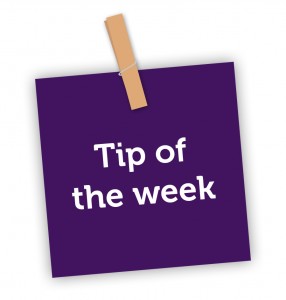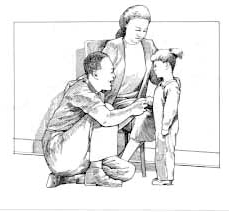TIP of the WEEK: Talking to Your Child About Prader-Willi Syndrome
July 13, 2012

We received several requests for a tip of the week that addresses how to explain PWS to your child. This is an important part of not only your child’s growth and understanding of the syndrome, but for yours. PWS is a journey, it is challenging and frightening at times and at other times it is joyous and rewarding. You did not ask to be the parent of a child with PWS but you wouldn’t give them back for all of the money in the world! Parents and other family members go through a range of emotions when they receive the diagnoses and you spend years educating doctors, family members and teachers but we sometimes forget the most important person who needs to be educated- the child themselves.
There is no right age to start talking to your child about the syndrome as long as you keep in mind your child’s ability to process information. You know your child and what information they can understand. Keep it simple and avoid words such as ” problem” or “disability”. Labels are hard for anyone but especially hurtful to a child.
Emphasize what your child can do and avoid telling him or her that they will never be able to do something, instead talk about what you know they will be able to do. Often when your child meets other kids with PWS it can be eye opening for them. Even if your child has not expressed feeling lonely or different, meeting other kids with PWS can be an opportunity to feel accepted. Most importantly, let the conversation be open and have it as often as your child wants or needs. Some families read stories such as “Michael and Marie” or listen to ” I have Prader-Willi but my name’s not Willi” every night. Others just answer questions as they come up.
No one knows your child better than you do. You are the expert. Trust your judgment and always remember that we are here to help if you need advice or guidance.

Patrice Carroll is Latham Centers’ world-renowned Prader-Willi Syndrome specialist. She works with Latham Centers’ residents with PWS, their families and consultants, continuously learning and teaching about PWS best practices.
